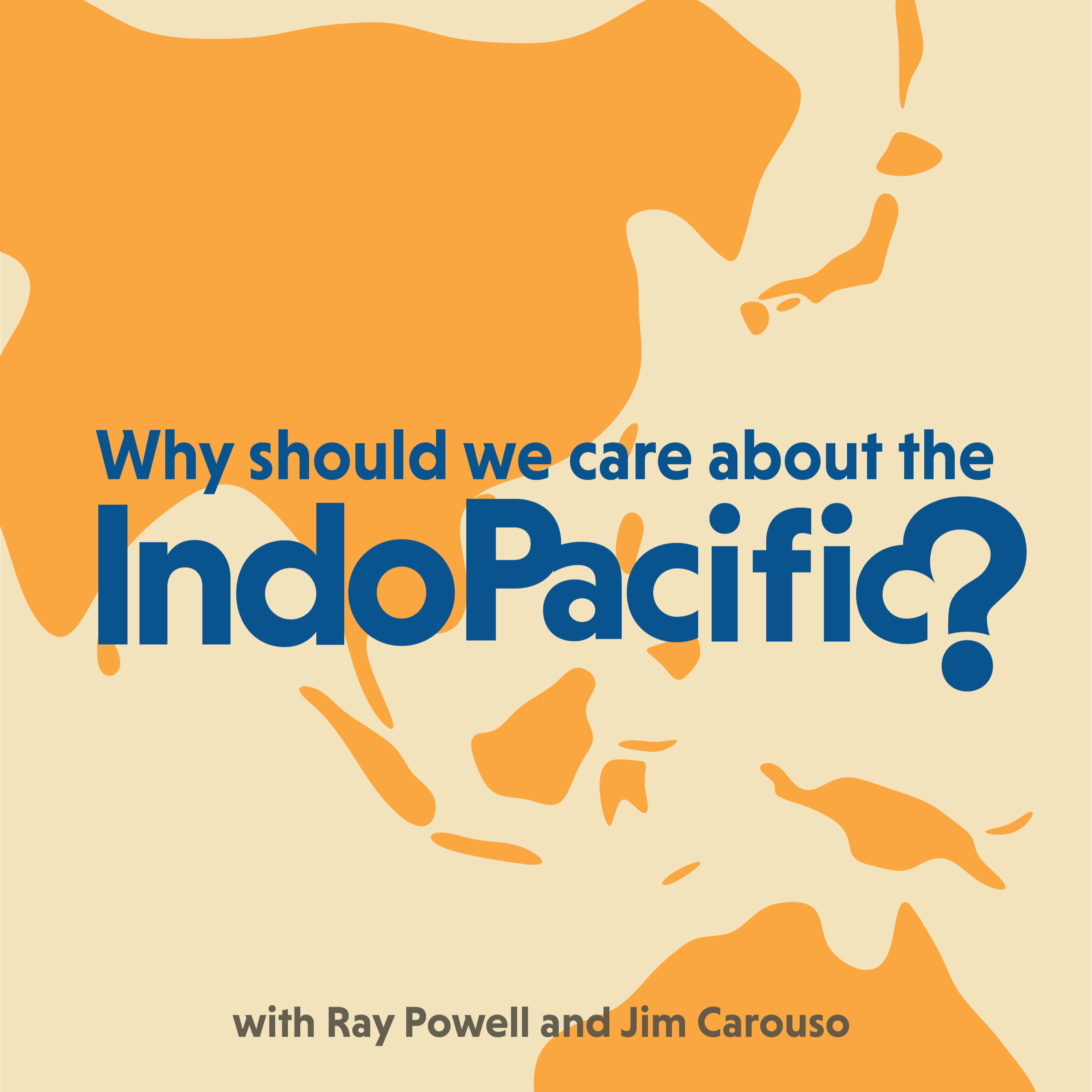
Why Should We Care About China's Gray Zone Influence Campaign in the Pacific Islands? | with Cleo Paskal

Why Should We Care About the Indo-Pacific?
Deep Dive
Shownotes Transcript
In this episode, hosts Ray Powell and Jim Carouso sit down with Cleo Paskal), a leading Indo-Pacific analyst and non-resident senior fellow at the Foundation for the Defense of Democracies, to unpack the growing threat of China’s gray zone influence in the Pacific Islands and why it matters for the United States and its allies.
Paskal explains the strategic significance of the Pacific Islands, which include U.S. territories and the three Compact of Free Association states—Palau, the Marshall Islands, and the Federated States of Micronesia. These islands serve as America’s “gateway to Asia,” enabling military access and power projection across the Pacific to key allies like Japan and Taiwan. Historically, whoever controls these islands can threaten the U.S. mainland and dominate Pacific trade routes—a reality recognized since the days of President McKinley and the Spanish-American War.
Cleo prefers the Filipino term “ICAD” (Illegal, Coercive, Aggressive, and Deceptive) over “gray zone” to describe China’s activities. She details how Beijing uses a “braided” approach that combines commercial investments, strategic infrastructure, and criminal enterprises. Chinese-linked businesses often promise development but end up facilitating elite capture, corruption, and even state capture, while most of the population sees little benefit. Activities include:
- Bribery and elite capture of local officials
- Strategic port and real estate acquisitions near sensitive military sites
- Criminal networks trafficking drugs, gambling, and human trafficking
- Political interference, media manipulation, and lawfare against local opposition
The podcast explores how China’s influx of money and promises of quick infrastructure projects are hard for small island economies to resist—especially when Western aid is slow, bureaucratic, or absent. However, Cleo notes that Chinese economic engagement often benefits only a narrow elite and can leave countries worse off, both economically and environmentally. She argues that the West, especially the U.S., must offer meaningful economic alternatives and support for good governance, not just military or diplomatic engagement.
Despite U.S. political polarization, Cleo notes that support for the Pacific Islands remains bipartisan, especially regarding the renewal of the Compacts of Free Association. She also stresses that Pacific Islanders view the U.S. differently from former colonial powers, seeing America as a beacon of liberty and democracy—an image China is actively trying to undermine through narrative warfare.
This episode makes clear that the Pacific Islands are not just remote dots on the map but are central to U.S. security, the rules-based order, and the future of the Indo-Pacific. China’s gray zone campaign is a sophisticated, multi-layered threat that demands urgent, coordinated action from the U.S. and its allies—combining hard security, economic opportunity, and support for local agency and resilience.
Follow our podcast on X, @IndoPacPodcast); or on LinkedIn) or BlueSky)
Sponsored by BowerGroupAsia)